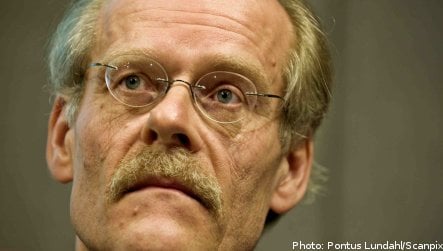“The global crisis will continue affecting the Swedish economy…The prognosis is that GDP (gross domestic product) will fall next year,” Ingves wrote in an opinion piece for the Dagens Nyheter daily.
There is significant doubt as to how bad 2009 will be for Sweden and the global economy but one thing is certain – it will be a bad year, Ingves concluded.
“The outlook for 2009 is dire. Everyone had expected the economic situation to weaken but not that the economy would worsen so quickly and become as feeble as what we are now seeing,” Ingves wrote.
The exposure of Swedish banks to the Baltic region is of “particular concern” according to Ingves although he expressed confidence in the Swedish banking sector.
“Our assessment is that the banks are sufficiently strong to be able to manage increasing credit losses in the region.”
Despite the dire outlook Ingves sees some light at the end of the tunnel. A long period of high growth has made the Swedish economy resilient and in a strong position.
The effects of a string of measures from the Riksbank and the government have helped to counter the crunch, Ingves insisted.
“There will be a year of weak economic development, but a year where we, together with other countries, will continue to deal with the problems. These lays the basis for an improved development in 2010.”
The central bank has for instance rapidly slashed Sweden’s key interest rate to just 1.75 percent from 4.75 percent in September while the centre-right government has dished out several billion Euros to stimulate the economy and rescue industries such as the beleaguered automotive sector.
Swedish actions and similar international measures have “countered the most pressing problems but the financial markets are still working much worse than normal,” Ingves concluded, calling for greater cooperation to handle the crisis.



 Please whitelist us to continue reading.
Please whitelist us to continue reading.